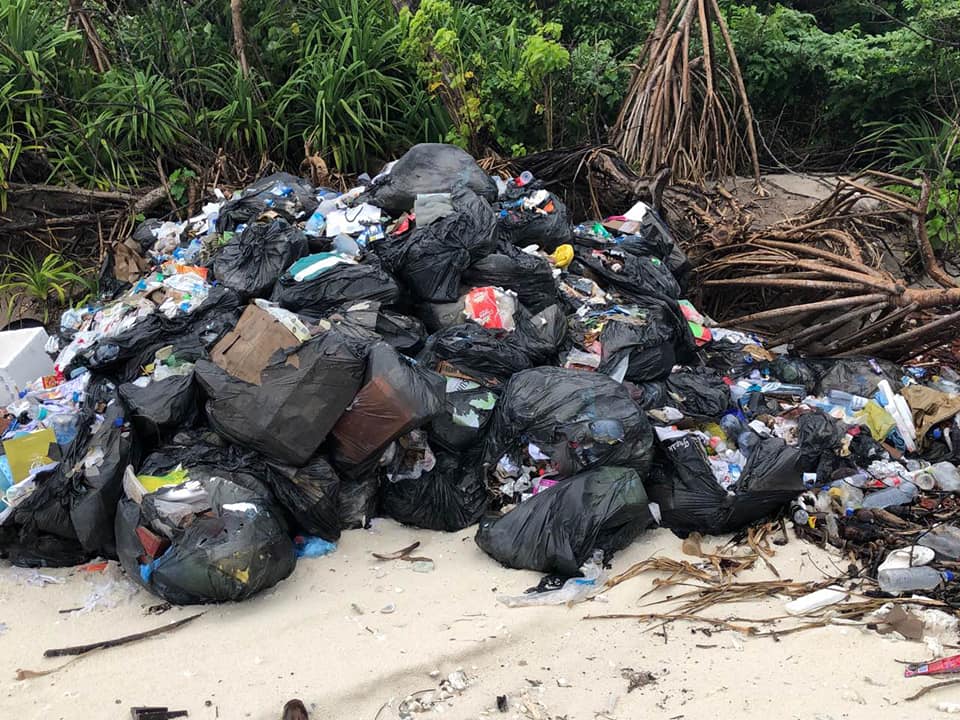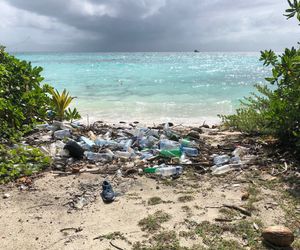Why it’s time to ban the bottle and the bag
In an open letter, local officials, MPs and resort operators are calling on President Solih to tackle the scourge of plastic waste.

08 Jul 2019, 09:00
Take a morning stroll along any beach in the Maldives and you'll be confronted with the same sights: swaying palms, crystal clear waters, powder soft sand – and plastic rubbish everywhere.
The Maldives is awash with plastic pollution, with single-use water and cola bottles littering the roads, beaches and lagoons, and plastic bags getting caught up in coral reefs. Meanwhile, with no proper waste disposal, every local island in the country burns plastic waste in poisonous bonfires.
Our beautiful country is in danger of becoming another Bali: a once-pristine, tropical tourist paradise ruined by plastic litter.
We don't want to be known as a dirty country. This is why the undersigned island council presidents, members of parliament, and resort operators are calling on President Ibrahim Mohamed Solih to tackle the source of the scourge and impose a nationwide ban on single-use plastic bags and bottles.
Become a member
Get full access to our archive and personalise your experience.
Already a member?
Discussion
No comments yet. Be the first to share your thoughts!
No comments yet. Be the first to join the conversation!
Join the Conversation
Sign in to share your thoughts under an alias and take part in the discussion. Independent journalism thrives on open, respectful debate — your voice matters.




